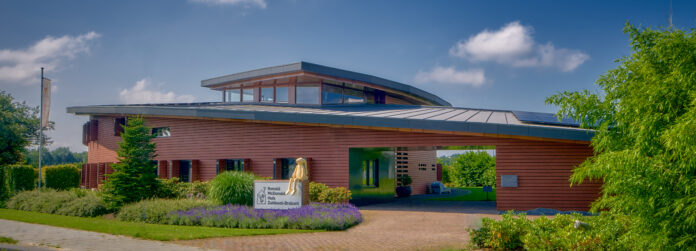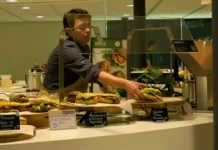After providing hospitality for over twenty years, the Ronald McDonald House Veldhoven might still not be known to everyone in the Brainport area. High time, therefore, to highlight the important role the house plays in the wellbeing of families with a child in the hospital, and to explore the motivation of the people who make it happen.
Eindhoven News interviewed volunteer Marie-José Schoenmakers and manager Maaike Veenbrink to learn what drives them to ensure RMDH Veldhoven continues to provide its crucial service so smoothly.
Maaike and Marie-José receive me in the spot where the parents of children in the hospital register – not a desk but a cosy room with good coffee. Maaike explains the concept of the RMDH and the organisation that drives it. The Veldhoven RMDH fulfils a specific need when it comes to preterm babies and their parents. Maxima Medical Centre is a regional hospital with a special focus on Pre-term babies. Their NICU (neonatal intensive care unit) is one of ten such units in The Netherlands, and responsible for developing the Bambi Belt. This device monitors the baby’s condition without the need for wires and adhesive electrodes. Obviously, when a mother gives birth preterm, the parents are anxious and confused.
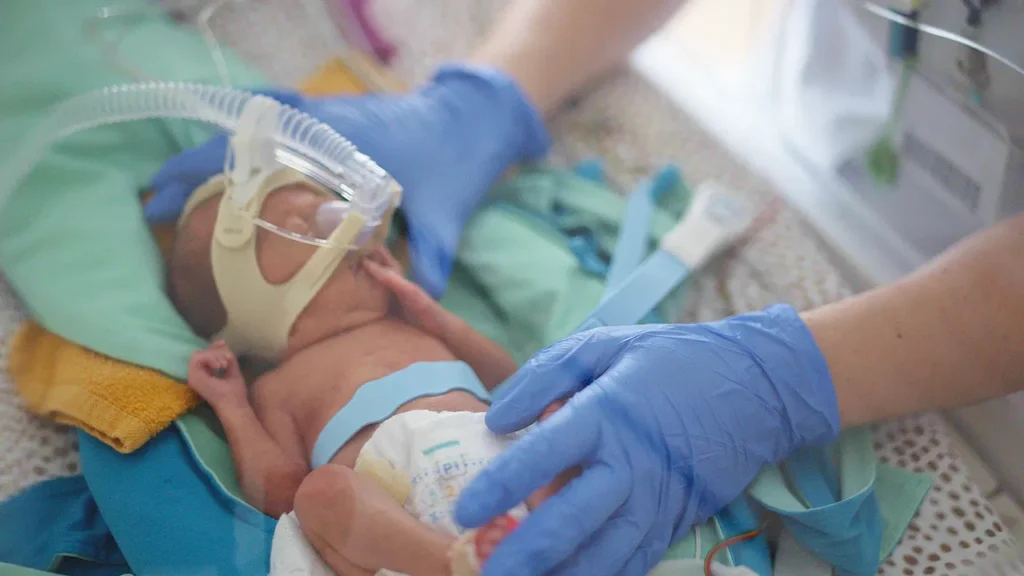
A vital service
This is when the RMDH can prove its worth. The house offers an affordable room where the parents and siblings can find respite and privacy. The mother needs to be close, for the breast milk which makes such a difference to how well the baby develops and the equally important kangarooing. With kangarooing, the mother or father has skin on skin contact, which stabilises the baby’s heart rate and calms breathing and forges a vital bond. A room close to where their baby is makes these anxious times a bit easier for the parents.
Some hospitals also have room-in options, where the mother stays with the baby, but this is usually only possible for a short period. Room-in may reduce anxiety by having the baby really close, but also makes it difficult to relax. After all, a hospital is a round-the-clock business with lights and sounds and nurses and doctors walking in and out. Stay in the RMDH is longer – in Veldhoven an average stay is 15 days- and offers a place to withdraw. The family have a room, and share the living room, kitchen, dining room, and laundry facilities with other guests. The eight rooms in Veldhoven are full for 85% of the time.
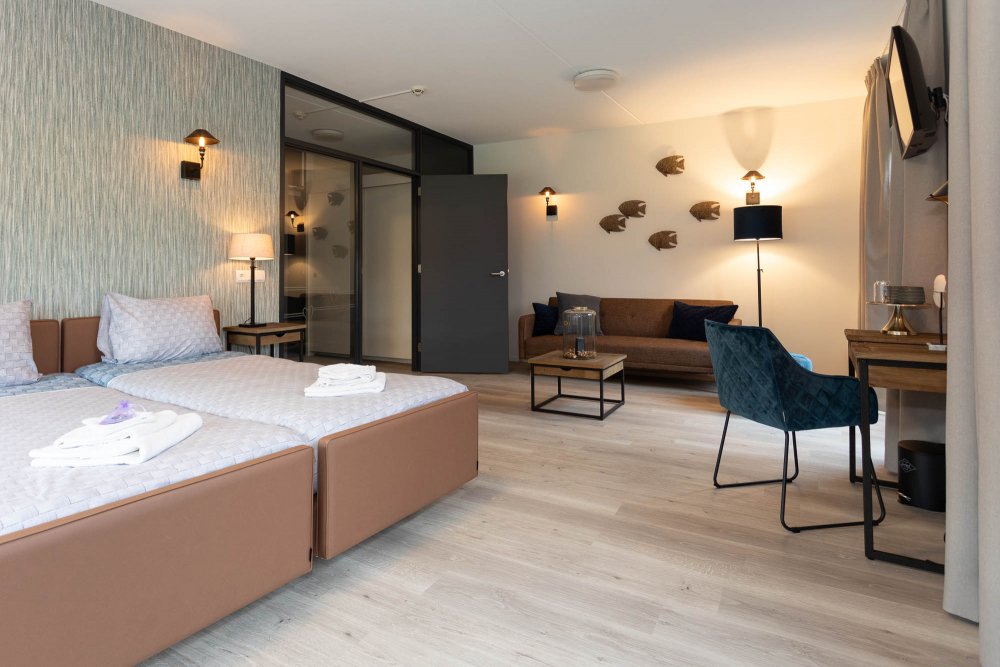
Marie-José is one of nearly 100 volunteers.
A team of volunteers ensure that parents find a warm, clean environment and the privacy they need. Every day, there are 13 volunteers for the four 3-hour shifts and the one night shift. Marie-José is one such volunteer. She joined 12 years ago when her four children needed her less than when they were small. She tells me why she has been there for so many years and why she is not the only one to show such loyalty and commitment. “The work is vital”, she says. “The house fulfils a real need. And the atmosphere is great. It is warm, friendly, welcoming. I am a member of a team, but I also feel I am part of a wider community, supported by every one of the three members of the leadership team”. Her tasks involve checking guests in or out, ensuring that the rooms are clean when families move in, and keeping the kitchen and laundry facilities clean and in good working order.
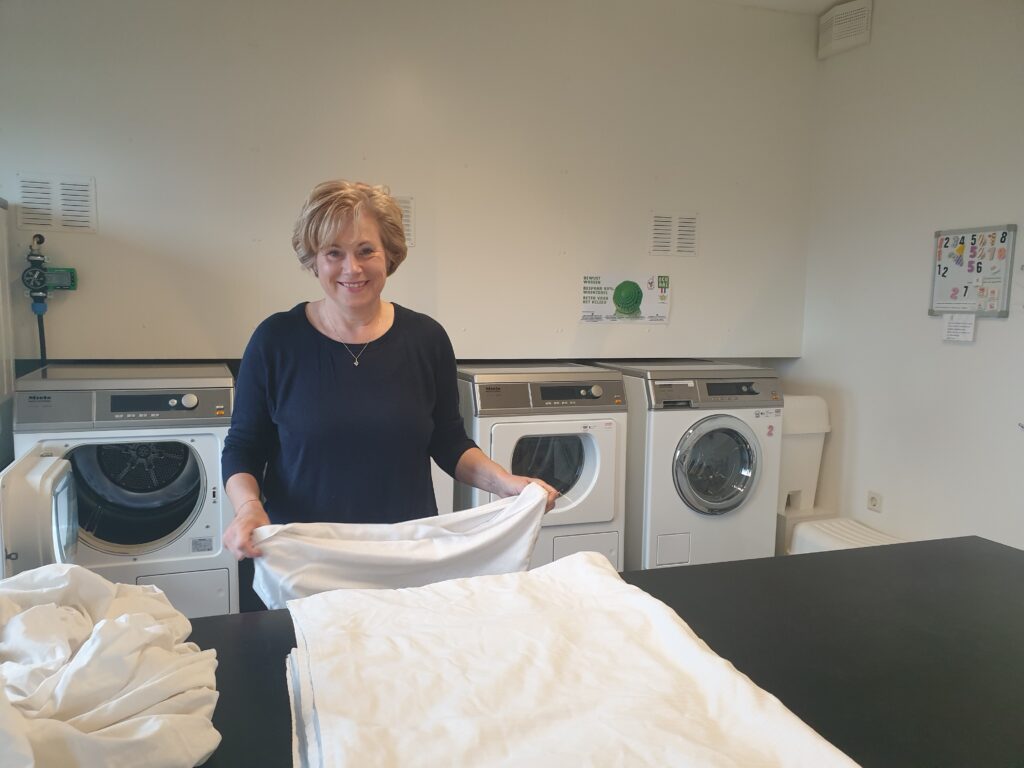
Besides these tasks in the house, volunteers are also responsible for the living room inside the hospital. This is precisely what the term implies: it is a family room inside the hospital that looks and functions like a living room. People can receive visitors there, have birthday parties, and spend some time with the patient’s siblings in a ‘normal’ atmosphere. No one entering the living room is allowed to wear a white coat. A final responsibility Marie-José has also taken on is classroom visits to primary schools. “Over the years, I have been to some twenty schools or more to tell children about the RonaldMcDonald foundation and the work we do”, she says. Her friendly smile and warmth certainly contribute to the home-from-home atmosphere the house creates, seemingly so effortlessly.
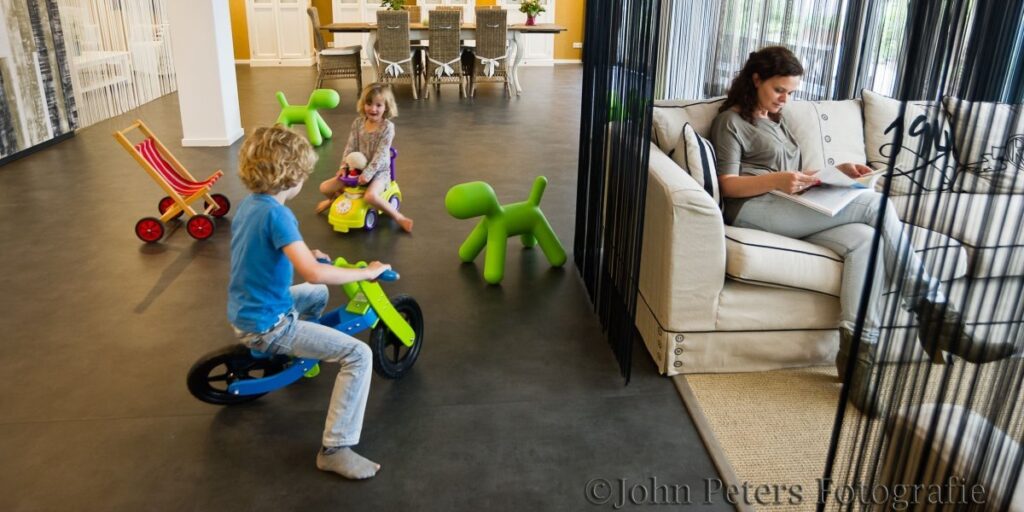
A wider community
Maaike confirms the focus on the culture at the RMD houses. “It is a warm network”, she says. We support each other here in Veldhoven but also across the organisation. The Ronald McDonald houses are a franchise, and the concept is clear”. McDonalds started the charity in 1974 by providing a house on the initiative of Philadelphia Eagles athlete Fred Hill when his daughter was in hospital with leukaemia and he experienced how difficult it was to stay close to a sick child. By 1979, ten more Houses had opened. Fifteen years later, local communities founded more than a hundred Houses. Today, RMHC has grown to over 380 chapters in 62 countries worldwide. “In the Netherlands”, explains Maaike, “the Ronald McDonald Kinderfonds is the umbrella organisation. They adhere to concept the U.S. dictates, and ensure its continuity through regular meetings and seminars, and a network of working groups”. McDonald’s are still the main sponsors. In Veldhoven, sponsorship covers the cost of the house, the family room in the hospital, and the salaries of the three paid employees.
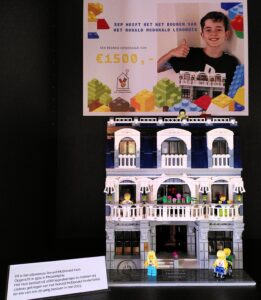
Regional differences
In the Netherlands, the RMD Houses are attached to academic hospitals, where all specialisations are available, and a few regional hospitals. In those regional hospitals, the guest intake and the length of stay depend largely on the specialisation of the nearby hospital. Veldhoven and Zwolle have neonatal intensive care for example, and Tilburg specialises in trauma. This is why there are different dynamics in each house. The number of rooms is also a factor. Veldhoven has 8, whereas the largest houses have some 25 to 30. If Veldhoven has more guests than rooms, it can make use of Koningshof or Van der Valk, two sponsors who offer rooms at the RMDH standard rate of 15 € a night. These two hotel chains belong to ‘the 52 Club’, a group of sponsors committed to the RMD House in their region.
“A warm network”
The sponsors are just as much part of the ‘warm network’ Maaike says she is part of. Everyone, apart from the three paid staff, is a volunteer, from the men and women who ensure the guests are welcomed and made to feel welcome, to the members of the board. “Everyone works with a sense of the work being its own reward”, says Maaike. “You are giving the best you can but get as much, if not more, in return”. This also applies to ‘the 52 clubs’. Maaike is in regular contact with the club – consisting of 104 companies, two for each week – who gladly lend their financial support for a cause that maximises human happiness. “It is an exchange for mutual benefit”, says Maaike. “Each gives and each gets”.
The happiness curve
In moving from facts and figures to philosophy, Maaike has become increasingly animated. Clearly, the concept of charity itself is also what she is passionate about. She shares a view she encountered recently. “Human happiness is a curve. When people do not have enough to get by, more money will contribute to their happiness. More money does not continue to add happiness, though. The curve flattens. After 10,000 €, something else will help the curve go up further. You become happier by being meaningful to others. You add meaning to your own life that way”, Maaike feels. “Besides, businesses are not just about making money. Successful firms want to promote the well-being of society if they can. Parents giving their time, money and effort to create a better society also model such behaviour to their children”.
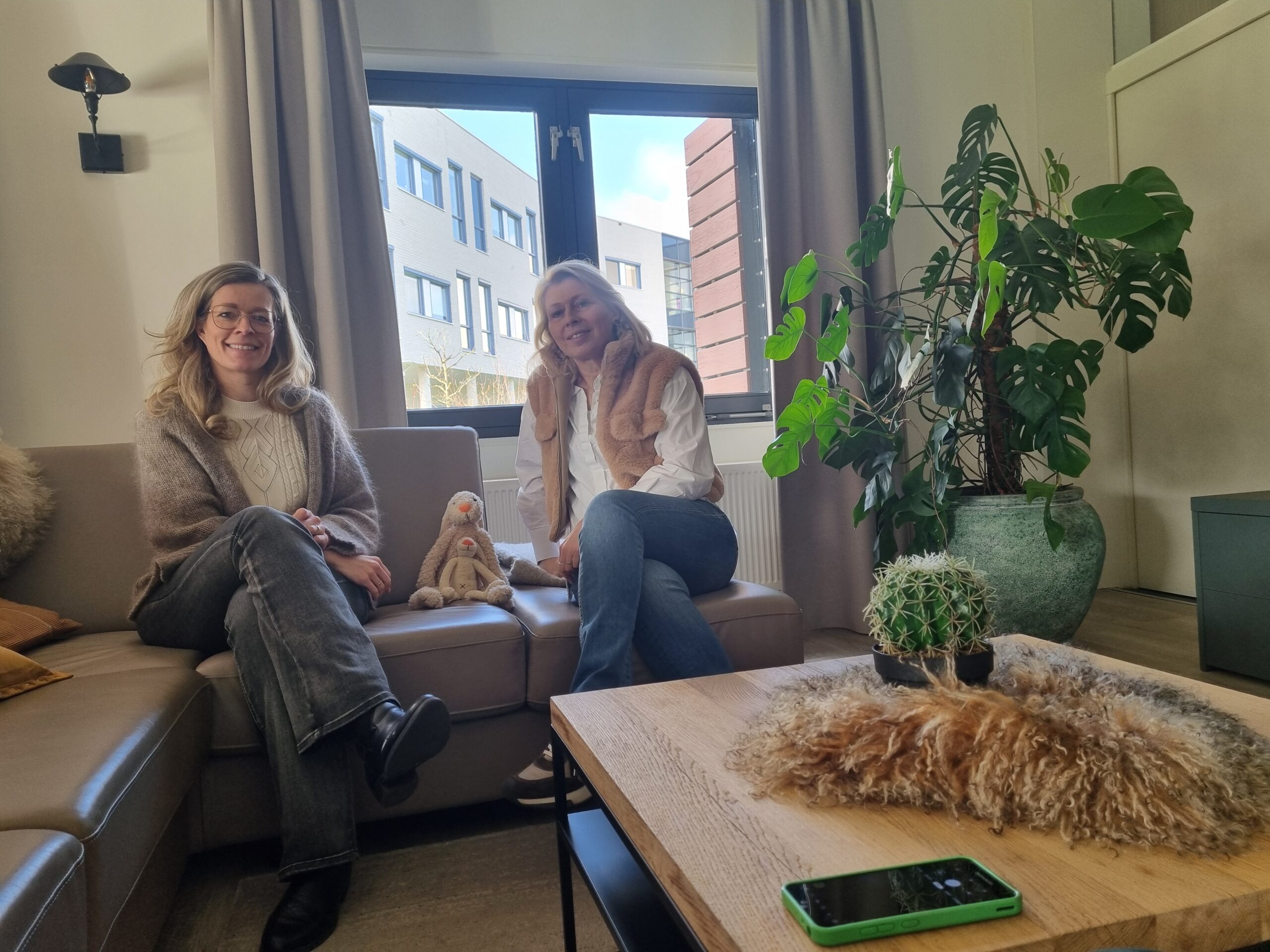
And so, volunteering is not about cost-cutting, Maaike and Marie-José agree. It is about creating a society where the things that need doing get done, where we create a society with a culture of mutual benefit for the wellbeing of all. Wow.


